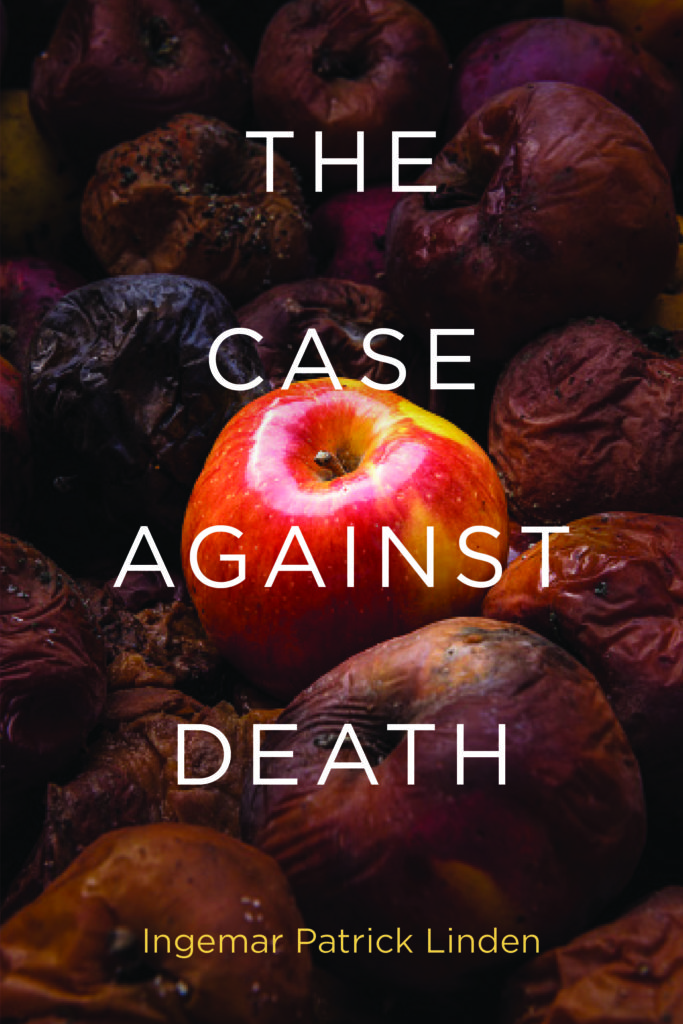Others now dare to think rather differently. In his forthcoming book THE CASE AGAINST DEATH, philosopher
Ingemar Patrick Linden points out that evolutionary biology explains why we age and die, but not that we must age and die, or that we ought to. “If our life and future is valuable,” he writes, “then dying is one of the worst things that could possibly befall us . . . if we could live in good health to 120 or 200 or 1,000 or indefinitely, would this be good? For me, the answer is clear. My experiences tell me that unless there is a good afterlife, death is a horrific evil and nothing is more important than preventing good people from dying. I am a death abolitionist and a life prolongevist.”
FINANCIAL TIMES
“This book addresses many of the ‘curmudgeonly’ arguments about immortality that are (too) much in vogue. Linden argues persuasively that death can indeed be a bad thing for an individual and that immortality could indeed be worthy of a choice. It helps to achieve a balance in the contemporary debates about the these issues, and it helpfully integrates the philosophy within a broader intellectual context.”
-JOHN MARTIN FISHER, DISTINGUISHED PROFESSOR OF PHILOSOPHY, UNIVERSITY OF CALIFORNIA, RIVERDALE
Philosopher Ingemar Patrick Linden says exactly what he thinks about dying. His polemic, The Case Against Death, argues that death is the ultimate scourge of humanity. “I enjoy watching snow drift on a winter’s day,” he writes. “That’s enough for me to hate death.” If life is good, we should do all we can to resist its end.
PROSPECT MAGAZINE
The Case Against Death offers a useful provocation to readers not previously versed in the philosophical controversies it addresses.
THE PHILOSOPHICAL QUARTERLY
It is very clearly-written and completely accessible to any college-level reader, including those with no background in philosophy. Readers will have no difficulty seeing the relevance of these issues for their own lives.
BIOETHICS

ORDER NOW:
Ingemar Patrick Linden’s central claim is that death is evil. In this first comprehensive refutation of the most common arguments in favor of human mortality, he writes passionately in favor of antiaging science and radical life extension. We may be on the cusp of a new human condition where scientists seek to break through the arbitrarily set age limit of human existence to address aging as an illness that can be cured. The book, however, is not about the science and technology of life extension but whether we should want more life. For Linden, the answer is a loud and clear “yes.”
The acceptance of death is deeply embedded in our culture. Linden examines the views of major philosophical voices of the past, whom he calls “death’s ardent advocates.” These include the Buddha, Socrates, Plato, Lucretius, and Montaigne. All have taught what he calls “the Wise View,” namely, that we should not fear death. After setting out his case against death, Linden systematically examines each of the accepted arguments for death—that aging and death are natural, that death is harmless, that life is overrated, that living longer would be boring, and that death saves us from overpopulation. He concludes with a “dialogue concerning the badness of human mortality.” Though Linden acknowledges that The Case Against Death is a negative polemic, he also defends it as optimistic, in that the badness of death is a function of the goodness of life.